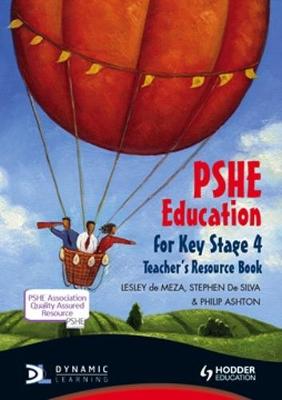
Pshe 1 Pupil's Book
No. of pages 72
Published: 2008
Add this book to your 'I want to read' list!
By clicking here you can add this book to your favourites list. If it is in your School Library it will show up on your account page in colour and you'll be able to download it from there. If it isn't in your school library it will still show up but in grey - that will tell us that maybe it is a book we should add to your school library, and will also remind you to read it if you find it somewhere else!
This book is part of a book series called Pshe .
There are 72 pages in this book.
It is aimed at Young Adult readers. The term Young Adult (YA) is used for books which have the following characteristics: (1) aimed at ages 12-18 years, US grades 7-12, UK school years 8-15, (2) around 50-75k words long, (3) main character is aged 12-18 years, (4) topics include self-reflection, internal conflict vs external, analyzing life and its meaning, (5) point of view is often in the first person, and (6) swearing, violence, romance and sexuality are allowed.
This book was published in 2008 by Hodder Education .
Marel Harper is a Development Officer for Curriculum for Excellence. Gail Whitnall is a Principal Teacher of Health, Food and Technology and has been seconded as a QIO for Health and Wellbeing. Stephen De Silva and Lesley de Meza are leading practitioners and trainers of PSHE at a UK and international level.
This book has the following chapters: CHAPTER 1 Introduction to PSHE 1. What is PSHE education? 2. How will we work together? 3. Where are we going? CHAPTER 2 Healthy routines 4. What do we need to do to keep healthy? 5. What is my personal health profile? 6. What decisions can I make about healthy eating? CHAPTER 3 Drugs 7. What do we mean by 'drugs'? 8. Fact or fiction 9. How do we reduce the risks? CHAPTER 4 Sex and relationship education 10. What do we mean by 'family'? 11. What's happening to me? 12. Why do I feel like this? CHAPTER 5 Assessing Risk 13. How do we manage risky situations? 14. How do we keep safe online? 15. How can we tackle bullying? CHAPTER 6 Meeting and working with others 16. How do I work best with others? 17. What do I want and how do I get it? 18. What do I do if I need help? CHAPTER 7 Managing personal money 19. What could we do with money? 20. Do I spend or do I save money? 21. How will I earn money in the future? CHAPTER 8 Changing 22. What are my rights and responsibilities? 23. What makes each of us an individual? 24. How can I make and keep good relationships? CHAPTER 9 Personal identity and self-esteem 25. Who am I? 26. What am I good at? 27. Where am I going? CHAPTER 10 Confident communication 28. How can we communicate better? 29. What does 'assertiveness' mean? 30. What are the biggest challenges for me? CHAPTER 11 Review Hey, how are you doing?
This book is in the following series:
"A bright, attractive and well-written PSHE resource that will support schools as they begin to roll out the new secondary curriculum." Jan Gouveia, Every Child Matters Officer, Westminster "What we liked about the series was that it is directly linked to the new curriculum, with reference to the key concepts and with a simple provision map. The lessons are well set out with clear objectives, and (just as importantly) assessment activities. The student book is very usable - even a non-specialist should be able to run a quality lesson. More confident teachers would be able to use the ideas as a springboard. A subject coordinator could feel safe that PSHE was being delivered to a good level, if these were being used across the school as a staple." Adrian Bowden-Green, Teacher Adviser - Healthy Schools PSHE, Worcestershire Healthy Schools "I especially liked the way in which each lesson outline was made up of a starter, a variety of activities which could be used to form the main body of the lesson, and a possible plenary encouraging good practice in planning a three-part lesson. The learning objectives are stated clearly at the beginning of each lesson outline. The activities provided encourage students to think for themselves, but also to work in groups, listening to and evaluating the views of others, as well as their own opinions." Association of Christian Teachers (ACT) website



